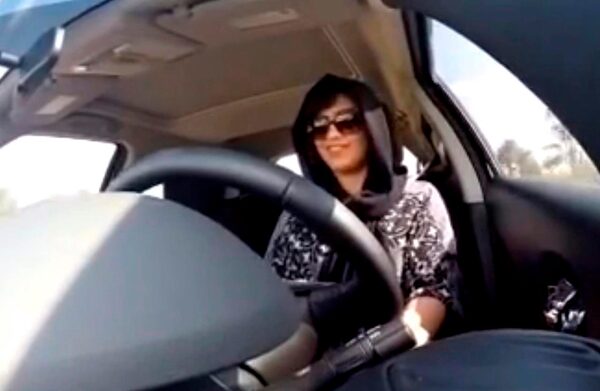
Loujain al-Hathloul shown driving towards the UAE-Saudi Arabia border before her arrest on Dec. 1, 2014, in Saudi Arabia.The Canadian Press
Three out of nearly a dozen prominent Saudi women activists arrested over nine months ago were temporarily released on Thursday, state news agency SPA said, and sources told Reuters the rest were set to be freed on Sunday.
Some of the women told a Riyadh court on Wednesday they had been subjected to torture in detention, including electric shocks, flogging and sexual assault, sources familiar with the matter said. The Saudi public prosecutor previously denied those allegations, calling them false.
The charges against at least some of the women are related to human-rights work and contacts with foreign journalists and diplomats – a case that has sharpened Western criticism of the kingdom following the killing of journalist Jamal Khashoggi last October in the Saudi consulate in Istanbul.
It remains to be seen if Riyadh will bend to international pressure and give the women acquittals or pardons – or pursue harsh sentences after state-backed media labelled them as traitors.
“The court indicated that the temporary release was decided after it studied their requests submitted during the trial sessions,” SPA said.
It said the court would continue to look into their cases and that the release was conditional on their attendance at their trials until a final decision is reached.
Informed sources identified the three women as blogger Eman al-Nafjan, academic Aziza al-Yousef, who is in her 60s, and Ruqayya al-Mohareb, a conservative preacher detained in an earlier crackdown on clerics and intellectuals.
CALL FOR UNCONDITIONAL RELEASE
Amnesty International welcomed their release but called for the unconditional release of all those on trial, which also include rights campaigner Loujain al-Hathloul and university professor Hatoon al-Fassi.
The detentions occurred weeks before a ban on women driving cars in the conservative kingdom was lifted as part of efforts to relax social rules and boost the economy.
Activists and diplomats have speculated that the arrests may have been meant as a message to activists not to push demands out of sync with the government’s own agenda. But Crown Prince Mohammed bin Salman has denied that, accusing the women of working for Qatari and Iranian intelligence.
The public prosecutor said last May that some of the women, along with several men, had been arrested on suspicion of harming Saudi interests and offering support to hostile elements abroad.
Critics have said the case reveals the limits of the Crown Prince’s promises to modernize Saudi Arabia.
Three dozen countries, including all 28 EU members, Canada and Australia, have called on Riyadh to free the activists. British Foreign Secretary Jeremy Hunt and his U.S. counterpart both raised the issue during recent visits to the kingdom.
Nine prominent U.S. senators wrote a public letter last week asking King Salman to immediately release prisoners held on “dubious charges related to their activism,” citing many of the women currently on trial.
Western diplomats and media, including Reuters, were denied entry to both court sessions this month and escorted from the building, despite petitioning to let them attend.